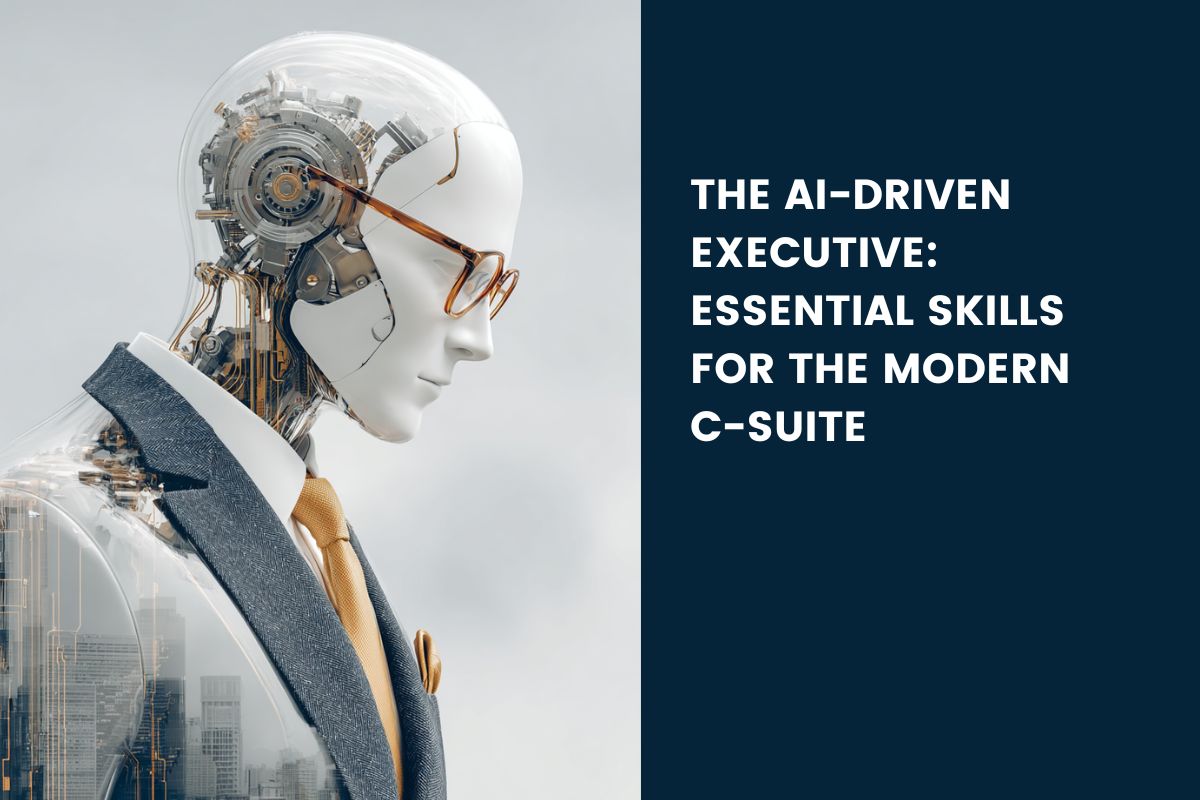What Are the Essential Skills for an AI-Driven Executive?
To lead effectively in this environment, executives need a balance of human and digital skills. The following stand out:
➜ AI Literacy: You do not need to code, but you do need to understand the basics of AI, how it applies to business, and what questions to ask.
➜ Data-Driven Decision Making: Intuition still matters. Yet pairing it with data brings confidence and credibility to the boardroom.
➜ Change Management: People often fear what they don’t understand. Leaders must bring clarity and empathy to AI-driven change.
➜ Strategic Agility: Markets move fast. Leaders who can pivot quickly are better placed to protect and grow their organisations.
➜ Collaboration with Technology Teams: Success depends on bridging the gap between strategy and implementation.
➜ Ethical Leadership: Trust is hard won and easily lost. Responsible AI use is not optional.
How Is AI Changing the Role of the C-Suite?
AI is nudging leadership away from gut feel towards evidence-based decision-making. That does not mean instincts are irrelevant. It means leaders now have the chance to test those instincts against data before acting.
The modern executive is expected to:
➜ Keep learning, especially about digital capability.
➜ Create space for innovation and experimentation.
➜ Balance automation with the human judgement that builds trust.
Boards are increasingly seeking executives who can adapt their style of leadership to this reality. Those who ignore it risk becoming disconnected from both their teams and their markets.
Challenges in Leading AI Transformation
Embedding AI is not always smooth. Leaders often encounter:
➜ Resistance to change from teams who fear disruption.
➜ Skills gaps in data and digital literacy.
➜ Ethical and regulatory complexity that is hard to navigate with confidence.
We have worked with boards that face strong staff resistance to automation. By appointing leaders who combined technical curiosity with deep cultural alignment, they have not only implemented AI responsibly but also rebuilt trust across the workforce.
These challenges are manageable when leaders bring empathy, transparency, and the right advisory support to the table.
How Can Executives Build AI Competency Without a Technical Background?
Here’s some good news: you do not need to become an AI engineer to lead well in this space. What matters is curiosity, humility, and a willingness to learn.
Practical steps include:
➜ Taking short courses or executive programs on AI and digital leadership.
➜ Partnering with internal or external AI specialists who can translate complexity into business relevance.
➜ Building cross-functional teams that share knowledge openly.
The best leaders know when to lean on expertise and when to ask the right questions. Advisory partners, like Galvin-Rowley Executive, ensure these leaders are appointed with both cultural and strategic alignment in mind.
What Are the Risks of Ignoring AI?
Choosing not to engage with AI is itself a decision. And it comes with real risks:
➜ Competitors who integrate AI will likely outpace you in efficiency and innovation.
➜ You may miss insights that could strengthen your strategy.
➜ Regulators and stakeholders may lose confidence if governance falls behind.
The biggest risk of all is being seen as a leader who failed to prepare their organisation for the future. That risk can be mitigated by securing executives who combine digital fluency with measured, values-driven leadership.
Galvin-Rowley Executive Perspective
We work with boards and CEOs every day who are navigating these questions. The challenge is not just technical. It is cultural, strategic, and deeply human.
Our advisory-led approach ensures that leadership appointments are both future-ready and values-aligned. Whether it is appointing interim executives to stabilise operations, planning for succession, or strengthening board composition, our role is to ensure organisations are led by people who combine digital fluency with sound judgement.
In a time where uncertainty can feel overwhelming, securing the right leader provides stability, confidence, and measurable long-term impact.

